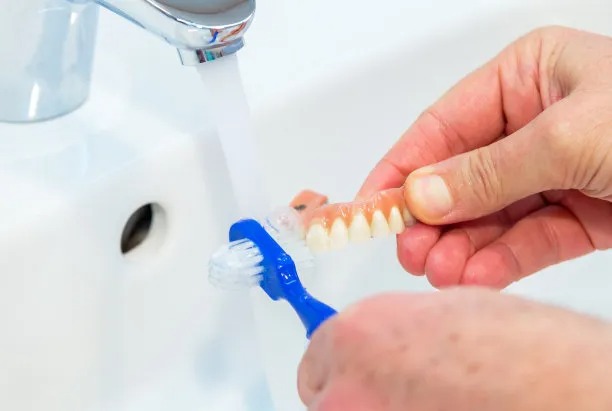Summary: Successfully undergoing dental implantation is a complex journey that necessitates careful planning, adherence to guidelines, and consistent follow-up. This article outlines essential guidelines and precautions to ensure successful dental implantation. It delves into the pre-surgical assessment processes, the importance of choosing a qualified dental professional, post-operative care practices, and the necessity of maintaining regular follow-ups. By exploring these four fundamental areas, the article aims to provide valuable insights for individuals considering dental implants, ultimately leading to optimal oral health outcomes.
1. Pre-Surgical Assessment and Planning

Before embarking on the dental implantation journey, a comprehensive pre-surgical assessment is crucial. This process involves thorough evaluations, including dental imaging and medical history assessments, to identify any potential issues that might affect the success of the procedure. Imaging helps to visualize the jawbones density and structure, which is essential for implant placement.
Moreover, assessing the patients overall health is vital. Chronic conditions such as diabetes or heart disease can impact healing and increase risks. Consulting with a medical professional ensures that any underlying health issues are addressed prior to surgery, boosting the chances of a successful outcome.
Lastly, establishing realistic expectations about the procedure and its results is vital. Patients should have a clear understanding of what dental implants can achieve, including aesthetic improvements and functional benefits, which will help in aligning their expectations with the realities of the surgical outcome.
2. Selecting a Qualified Dental Professional
The choice of dental professional significantly influences the success of dental implantation. It is important to select a qualified and experienced implant dentist or oral surgeon who specializes in this field. Researching credentials, reading reviews from past patients, and seeking recommendations can help in making an informed decision.
In addition to credentials, the dental professional’s experience with similar cases is vital. An experienced specialist is likely to encounter various complications and can effectively manage unexpected challenges that may arise during the procedure.
Furthermore, the clinic’s environment and available technology can also play a significant role in the overall experience. A facility that utilizes advanced technology can enhance the precision of implant placement and improve post-operative care, making it an essential consideration during the selection process.
3. Post-Operative Care and Maintenance
Post-operative care is critical to the healing process following dental implantation. Initially, patients should follow the dentists instructions meticulously, including recommendations on diet, pain management, and oral hygiene practices. Soft foods are advised in the initial days post-surgery to avoid putting pressure on the implant.
Moreover, maintaining excellent oral hygiene is paramount. Proper brushed teeth and regular flossing prevent infection at the implant site, significantly enhancing the chance of healing successfully. Antibacterial mouthwashes may also be prescribed to further safeguard against potential complications.
Lastly, recognizing the signs of complications, such as excessive swelling, discomfort, or bleeding, is essential. Patients should feel empowered to contact their dental professional if they notice any unusual symptoms, as timely intervention can prevent severe issues and promote better healing.
4. Importance of Regular Follow-Ups
Following the implantation procedure, regular follow-up appointments are necessary for monitoring the healing process and the implants stability. These visits provide opportunities for dental professionals to assess the success of the implant and make any necessary adjustments or interventions.
Regular follow-ups also allow for professional cleanings and examinations that can prevent potential complications. The dental professional can identify issues before they worsen, such as bone loss or gum recession around the implant, ensuring long-term success.
Additionally, education during follow-up appointments is crucial. Patients can learn about the importance of maintaining oral health and how their lifestyle choices affect the longevity of dental implants. This knowledge empowers them to take proactive steps in preserving their oral health.
Summary: The journey to successful dental implantation entails meticulous planning and diligent care. From thorough pre-surgical assessments to selecting qualified professionals and maintaining post-operative hygiene, each step is crucial. Regular follow-ups reinforce the need for ongoing care, enabling patients to enjoy the long-lasting benefits of their implants.
This article is compiled by Vickong Dental and the content is for reference only.
Vickong Dental
Vickong Dental is a large medical group established in Hong Kong in 2008 by professors from well-known medical universities in Guangdong and Hong Kong, as well as medical doctors from key national '985' universities (including Master's supervisors and senior professors). The chain of branches brings together expert dentists with PhDs and Master's degrees from Hong Kong and Mainland China, committed to providing high-quality dental treatment.
"Vickong Dental Practices the University Motto of 'Healing and Serving Society,' with a Stable Operation for Sixteen Years. It Has Been honored with Hong Kong Enterprise Leaders's Choice,' and is a Global Trusted Implant Center for the Nobel Implant System. Recommended by Hong Kong Metro Broadcast and Guangdong Television, it Serves Customers from Over Thirty Countries and Regions, Gaining the Trust and Favor of Citizens from the Guangdong-Hong Kong-Macau Greater Bay Area and Surrounding Cities.

Thousands of customers' unanimous praise
The most recognized and highly recommended dental service by customers in the Guangdong-Hong Kong-Macau Greater Bay Area
We Ensure You Receive Detailed Care and Attention Here
Hong Kong standards, Shenzhen prices, Your Trusted English-speaking dentists

Vickong Dental Medical-Grade Instrument Disinfection Process
Vickong Dental Medical-Grade Instrument Disinfection Process

Vickong Dental Chain: A Warm and Comfortable Environment for Treatment






Appointment Hours

Q&A
Why choose Vickong Dental?
Vickong Dental practices the university motto 「Medicine to Benefit Society」, with each branch bringing together highly qualified dentists with doctoral and master’s degrees from Hong Kong and the Mainland, and has maintained seventeen years of steady operation。Recipient of 「2024 Hong Kong Enterprise Leaders Brand」, 「2025 Hong Kong Enterprise Leaders Brand」, a Nobel Biocare Global Trusted Implant Center, and a brand recommended by Metro Radio Hong Kong and Guangdong TV。
To date, we have served customers from more than thirty countries and regions,earning exceptionally high word-of-mouth recognition and trusted recommendations from residents across the Guangdong-Hong Kong-Macao Greater Bay Area and surrounding cities
We have eight major branches in Zhuhai、Shenzhen,and a consultation and service assurance center in Hong Kong,so you can book a free consultation at any time for any questions,which is very reassuring.
If I do not accept the quotation after the CT scan, will I be charged??
No! As long as the actual treatment has not started, you will not be charged any fees.
Will there be any additional charges during the treatment process?
No, there won’t be any additional charges. Before treatment begins, we will clearly explain the treatment plan and its corresponding fees. Only after the patient agrees and signs the consent form will we proceed with the dental service.
Can I pay in Hong Kong dollars?
Yes. Vickong Dental accepts payment in Hong Kong dollars. The amount will be converted based on the exchange rate of the day, and the applicable rate will be clearly communicated to you in advance.
Can I reschedule my appointment at any time?
Yes. Please contact us via **WeChat** or **WhatsApp** as early as possible, providing your original appointment time and details, along with your preferred new date and time slot for rescheduling.













